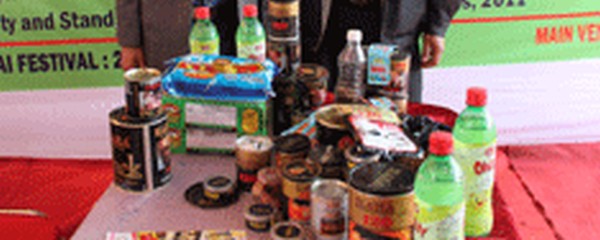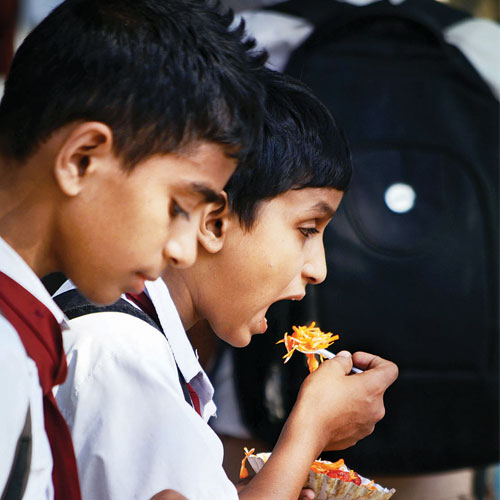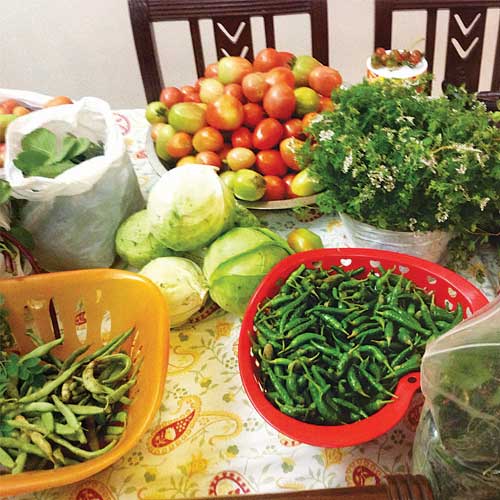Customers are at the mercy of the 50-odd retail meat shops in the city where
there is no monitoring of the quality of meat or the methods used to slaughter
the animals.
Be compassionate to animals, GO tells local bodies
A new government order (GO) has directed local bodies across the State to observe hygiene and compassion at slaughterhouses.
The order, issued by the Animal Husbandry Department on November 19,
directed local bodies to strictly follow Section 38 of the Prevention of
Cruelty to Animals Act, 1960.
The section mandated that slaughter could be done only on the premises
of abattoirs and every such facility should provide a separate space for
stunning of animals prior to slaughter, bleeding, and dressing of the
carcass.
The department instructed local bodies to ensure that ‘repeated
hammering’ to stun the animal before slaughter be discontinued
immediately. It threatened penal action against violators. The GO wanted
abattoirs to switch to the ‘captive bolt pistol method’ to stun animals
in abattoirs in the next 6 months.
But there seemed to be no way in which any part of this order could be
implemented in Kozhikode city. To start with, the entire city does not
even have an abattoir.
Kothi abattoir
It was now a decade since the Kothi abattoir, started in the 1940s,
unceremoniously shut shop following protests against the indiscriminate
disposal of animal waste in the area.
So, for years, consumers here had been at the mercy of the 50-odd retail
meat shops in city limits for red meat. Most shopkeepers used the early
morning hours for slaughter, using the limited space between the
footpath and their shop fronts. There was no monitoring of quality of
meat or the methods they used to slaughter the animals.
Buyers were usually greeted with parts of animals and blood and gore lying strewn inside the shops or bundled in sacks.
The cattle for slaughter were brought from Koduvally, Coimbatore,
Karnataka, and Andhra Pradesh. “There is not a single licensed
slaughterhouse within Corporation limits. We have no means of checking
the quality of meat or the slaughter methods. We had repeatedly taken up
this issue with the Corporation, which does not even have a veterinary
surgeon. The post has been lying vacant for years,” T. John Kattakayam,
Chief Veterinary Officer, said.
Multi-pronged reforms
A GO on November 16, 2013 called for multi-pronged reforms. It pointed
to how ‘most of the slaughtering activities in Kerala is going on
without following the statutory provisions of the Prevention of Cruelty
to Animals Rules of 2001, Bureau of Indian Standards guidelines,
pollution control legislations, meat production industry norms, etc.’
This GO advocated ‘engagement with butchers’ for capacity building and
improvement of their facilities as per standards. It prescribed
enhancing the abilities of animal husbandry, LSG bodies, Food Safety
Commissioner, and the Sales Tax Department for better quality checks.
Though the November 16 GO directed the establishment of new, modern
abattoirs, the Corporation here was doubtful of how soon they could come
up with one.
“We have forwarded a proposal for a slaughterhouse under the PPP model
to the State government. We have only recently completed acquisition of
land near the old Kothi slaughterhouse. The project was estimated at Rs.
40 lakh at the outset,” Deputy Mayor P.T. Abdul Latheef said.
“Maintaining hygiene standards in a slaughterhouse is not easy. First of
all, it requires proper infrastructure and waste disposal mechanism and
facilities for ante-mortem and post-mortem checks. It will be an
expensive affair to ensure hygiene and meat standards,” Dr. Kattakayam
said. But Meat Products of India Ltd (MPI), a public sector undertaking
licensed to sell and market meat products, presents a flip side. They
said their sales performance in Malabar was abysmally low despite strict
compliance to hygiene and slaughter norms.
For ordinary customers in the Malabar area, the price of red meat
probably weighed more than hygiene concerns, MPI sources said.
Kanakamma B., Marketing Supervisor, MPI, said the undertaking sold
hardly 300 kg of red meat every 14 days in Kozhikode. This was when
cities such as Thiruvananthapuram and Ernakulam averaged 1 to 1.5 tonnes
in the same time period.
“Our red meat is prepared and sold hygienically. But it costs Rs.230 a
kg. Unlicensed meat stalls sell at Rs.140 per kg. Customers find us too
expensive, so they do not buy our products,” she said.






















 Goa godowns asked to get food safety licences
Goa godowns asked to get food safety licences 



